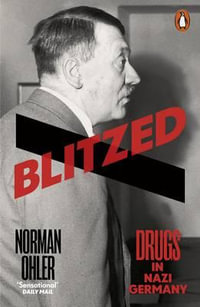In its skillful mid-20th-century re-narration and source analysis, Amar's noir is a major achievement. Specialists, graduate students and historiographical belligerents in European history should read The Paradox of Ukranian Lviv in order to rethink Ukraine's tumultuous past and present.
* Slavic Review *
The use of case studies, life histories, and personal sources in Amar's book helps in dealing with complicated theoretical issues and makes the book even more readable.... Amar's study claims a place in the field occupied by Jan Gross in Polish historiography: and that is why the book is destined to become a subject of heated debate. More important, it will provoke further works that challenge both national and imperial myths, and will prompt new problematizing of the issues of historical subjectivity, actorship, and responsibility.
* Ab Imperio *
Deploying a keen eye for contradiction and counterpoint, Tarik Amar's book unpacks how [Ukrainian] identity today rests on [Lviv's] oxymoronic reshaping as 'Soviet Ukrainian' after 1939.... Amar's sustained focus on the related topoi of urban milieu, borderland and Ukrainian identity at large is welcome.... There is much to appreciate here, including pithy phrases, a gifted eye for telling detail and serious archival graft. Amar sheds new light on the realities of political and social life in Soviet Lviv, and gives grounds for reconsidering its influence in the present.
* The English Historical Review *
A sophisticated study based on extensive archival research in Germany, Poland, Russia, Ukraine, and the US.... The result is more than impressive.... Surely, The Paradox of Ukrainian Lviv will become a standard text for those who wish to study Soviet modernization.
* The American Historical Review *
Amar examines [the theme of diversity] with a keen eye, erudition and intellectual rigor. His focus on personal agency is particularly noteworthy. Based on an impressive array of archival sources and other material, Amar suggests a compelling account of persistence and malleability of local identities in the grip of Soviet communism, Nazism and nationalism.... This is a seminal study essential for everyone who wants to get a deeper insight into issues of ethnicity, nationality and nationalism in Eastern Europe. While examining historical consequences of statesponsored political, racial, and social ideologies shaping Europe in the 20th century, Amar's book also leads us to deeper understanding of the role of Lviv in the contemporary political mobilization in Ukraine.
* Nations & Nationalism *
Students of modernization and nationalism in the Baltics will find great utility and even inspiration in Tarik Amar's study of historical change in western Ukraine.... Amar's basic argument-that western Ukraine was defined by the short, sharp shock of the Holocaust and Sovietization as much if not more than the interwar or earlier periods-may not be original, but it is developed at a level of detail and verve that sets this work apart.... On the strength of its extensive primary research and cutting-edge analysis, the book is certain to assume a significant place in the historiography of east-central Europe and the Soviet Union.
* Journal of Baltic Studies *
Makes an important contribution to the growing literature on the manner in which the successive violence of the first Soviet occupation, Germany's genocidal war, and the brutal return of the Soviets, combined with local nationalist agendas and prejudices, fed each other in producing an extraordinary degree of violence, mass murder, property transfer, and population displacement.
* Kritika *
Amar makes an important contribution to a growing English language historiography of Lviv.
* Choice *
Meticulously researched.... The Paradox of Ukrainian Lviv is clearly written and coherently structured. It presents readers with an accessible entry point to a bewilderingly complicated moment in history.... An impressive undertaking with an even more impressive result. Amar skilfully weaves together a lineage of state policies that vied for power over the Central European borderlands during the twentieth century. The book is a valuable resource for scholars and students of the Soviet Union, Eastern Europe and Nazi Germany, as well as those interested in authoritarian regimes, nation building and nationalism.
* Slavonic & East European Review *
Amar's mostly chronological journey through Lviv's twentieth-century history challenges the many myths that continue to (mis)shape the city's own reflection of its past. It also adds to our understanding of recurrent tensions in Ukrainian society and the armed conflict between Ukrainian and (pro-)Russian forces in the country's East.
* Laboratorium *
The Paradox of Ukrainian Lviv provides a meticulous examination of Lviv's wartime and postwar transformation from a diverse multiethnic borderland city to a Soviet and Ukrainian urban center. Amar's work is sophisticated and meticulous, and provides very useful, haunting insights on the confusing and often misunderstood history of Lviv.
* Canadian-American Slavic Studies *























